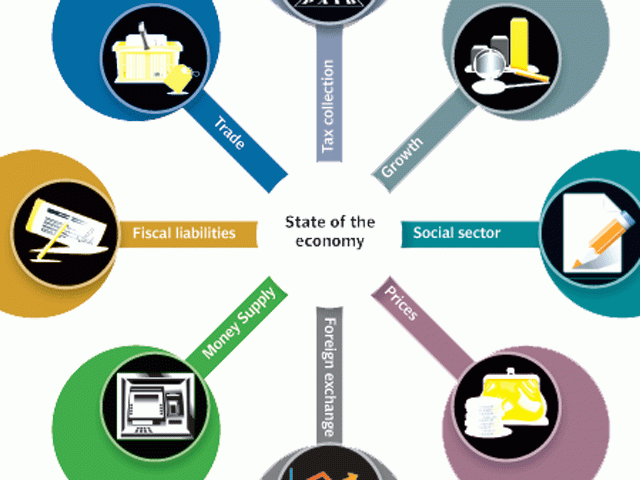Economist exposes flaws in governance
Dr Shahid Siddiqui talks about the past at a pre-budget seminar.

The Federal Board of Revenue (FBR) Chairman Mumtaz Haider Rizvi would have been unsettled on Monday had he kept his promise of attending the pre-budget seminar organised by the Institute of Chartered Accountants of Pakistan (ICAP).
Rather than senior chartered accountants who talked tough on economic policies, it was the fiery speech of economist Dr Shahid Hasan Siddiqui that would have embarrassed the government’s top taxman. In his speech, Siddiqui described the government’s economic performance of the last four years superlatively.
On the one hand, according to Hasan, inflation, public debt, non-performing loans and the poverty rate were the highest in Pakistan’s history. While on the other hand, he said the gross domestic product (GDP) growth rate, tax-to-GDP ratio and investment-to-GDP ratio had been the lowest since 1947 during the last four years.
“The average growth rate in the developing world was 6.5% in 2011. While Bangladesh and India grew by 6.3% and 8.2%, respectively, Pakistan’s GDP growth rate was just 2.4%,” he said, adding that Pakistan outspent India in the field of defence only while cutting spending on education and health. “We’ve practically become a security state.”
Hasan claimed that 28 million Pakistanis got into extreme poverty during the last four years only. “My estimate is that Rs11,000 billion of the middle and lower classes was transferred to the rich in Pakistani and foreign bank accounts in the last 11 years.”
Deposits, advances and assets of banks increased by 269%, 268% and 209%, respectively, between 2001 and 2010, Hasan said. The pre-tax profit of banks during the same period, he added, increased by 9,991%. “Have our banks really shared the gains with depositors on a profit and loss sharing basis?”
He criticised the State Bank of Pakistan for calling the external debt situation satisfactory. “As a percentage of foreign exchange reserves, our external debt was 257% in 2007. It’s now gone up to 379%. As a percentage of exports, it was 233% in 2007. It’s now 304%. Debt servicing as a percentage of foreign exchange reserves was 18% in 2007. It’s increased to 48%. Can we call it satisfactory by any means?”
About the war on terror, he said Pakistan had incurred losses of $80 billion so far. “The per-year loss in Musharraf’s six and a half years was $4.3 billion. It’s been $13 billion a year under the current government.”
Earlier, member of ICAP’s taxation committee Adnan Zaman presented ICAP’s budget proposals for 2012-13. Besides calling for a reduction in the corporate tax rate from 35% to between 25% and 28%, he proposed that salaried people should be allowed tax credits for educational and utility expenses.
“This will also help result in better documentation of the economy, as people will demand receipts that can be produced later to claim tax credits.”
Published in The Express Tribune, April 17th, 2012.


















COMMENTS
Comments are moderated and generally will be posted if they are on-topic and not abusive.
For more information, please see our Comments FAQ